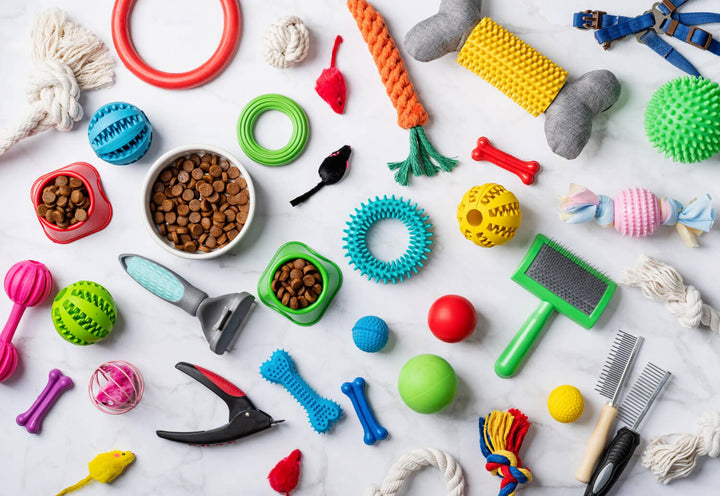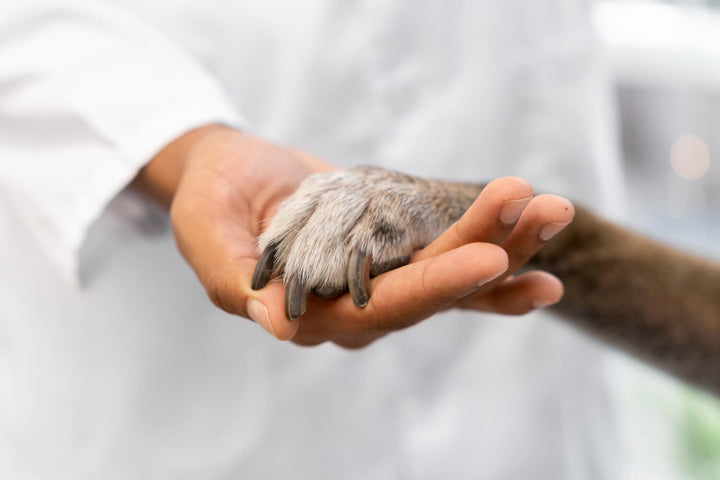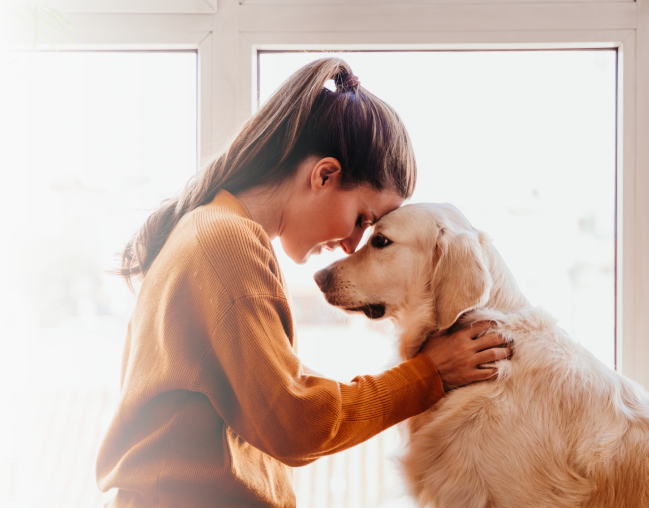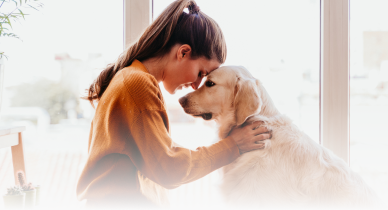How to Choose the Perfect Dog Breed for You
Written By: Lindsay Giguiere
Editor: Julie Zawadzki

Choosing a canine companion is a momentous decision that will impact your life for years to come. Dogs are cherished for their unwavering loyalty, remarkable intelligence, and boundless affection. They become devoted companions, providing not only companionship but also entertainment and a sense of purpose. With an extensive array of dog breeds to choose from, each possessing its unique qualities and characteristics, how do you determine which breed is the perfect match for your lifestyle and needs? In this comprehensive guide, we delve into the various aspects to consider when selecting the ideal dog breed that will seamlessly integrate into your life and bring joy and fulfillment.
What Happens If You Choose A Dog Breed Not Ideal For You

Choosing a dog breed that is not appropriate for a household can lead to a myriad of challenges, often resulting in a strained relationship between the family and the canine companion. This mismatch can give rise to behavioral issues, health concerns, and overall dissatisfaction, potentially leading to the unfortunate rehoming or surrender of the dog. Let's delve quickly into the consequences of selecting an incompatible breed:
-
Behavioral Issues and Unmet Needs. When a dog's natural instincts and energy levels do not align with the household's expectations and lifestyle, behavioral problems can emerge. For instance, high-energy breeds like Border Collies or Australian Shepherds may become destructive or exhibit anxiety when their need for physical and mental stimulation isn't met. This can lead to behaviors such as excessive barking, chewing furniture, or attempting to escape.
-
Increased Risk of Surrender. A study published in the Journal of Applied Animal Welfare Science found that behavioral problems are a significant factor in dog surrenders to animal shelters. Incompatible breed choices can contribute to these problems, increasing the likelihood of surrender. For example, a family might choose a breed like a Husky without fully understanding the breed's high exercise needs. The dog's subsequent restlessness and frustration could lead to surrender if the family is unable to meet those needs.
-
Financial Strain. Different breeds have varying healthcare needs, and selecting a breed without considering potential health issues can lead to unexpected financial burdens. Breeds prone to specific health conditions, such as hip dysplasia in large breeds like Great Danes or Bulldogs with respiratory issues, might require frequent medical attention and costly treatments.
-
Strain on Family Dynamics. An inappropriate dog breed can strain family relationships. For instance, a family that chooses a highly active and demanding breed without collectively committing to meet its needs may experience conflict and resentment. The added stress of dealing with behavioral challenges can lead to frustration among family members.
-
Impact on the Dog's Well-Being: Dogs that are not suited to their living environment may suffer emotionally and physically. For instance, a water-loving breed like a Labrador Retriever might struggle in a small apartment without access to open water, potentially leading to a decrease in the dog's overall well-being and happiness.
Consider the case of a family living in a small apartment choosing a large breed like a Saint Bernard. The dog's sheer size, coupled with limited living space, could result in discomfort for both the dog and the family. Another example is selecting a breed with a high prey drive, such as a Terrier, in a household with small pets like rabbits or guinea pigs. The potential danger to these pets could lead to a stressful and risky living situation.
According to the American Society for the Prevention of Cruelty to Animals (ASPCA), behavioral issues are one of the most common reasons for pet relinquishment. The National Council on Pet Population Study and Policy found that behavior problems were responsible for 47.7% of dog surrenders to shelters. Many of these cases can be attributed to choosing an inappropriate breed for the household's lifestyle and capabilities.
We can conclude that the repercussions of selecting an incompatible dog breed for a household can be profound and far-reaching. Behavior problems, financial strain, and potential strain on family relationships are just a few of the consequences that can arise. It is imperative for families to thoroughly research and consider their lifestyle, resources, and the unique characteristics of different dog breeds before making a decision. This thoughtful approach ensures a harmonious and fulfilling relationship between the family and their four-legged companion, promoting a lifetime of happiness and companionship.
What Factors Should You Consider When Choosing A Dog Breed?

When choosing a dog breed, several factors come into play to ensure a harmonious and fulfilling relationship between you and your future furry companion. It's important to consider various aspects that align with your lifestyle, preferences, and the dog's needs. Here are some of the most relevant factors to consider:
-
Lifestyle and Activity Level. Consider your daily routine, work schedule, and activity level. Some breeds require more exercise and mental stimulation, while others are content with a calmer lifestyle. Active individuals may enjoy breeds like Border Collies or Labradors, while those seeking a more relaxed pace might opt for Basset Hounds or Bulldogs.
-
Size and Space. The size of your living space matters. While some small breeds adapt well to apartments, larger breeds may need more room to roam. Breeds like Greyhounds are known for their apartment-friendly nature, while larger breeds like Golden Retrievers may thrive in homes with spacious yards.
-
Allergies and Shedding. If anyone in your household has allergies, consider hypoallergenic breeds that shed less dander and hair. Breeds like Poodles, Maltese, and Schnauzers are often better choices for allergy sufferers.
-
Temperament and Compatibility. Research breed temperaments to find a match that aligns with your personality and lifestyle. Are you looking for an affectionate lap dog, an energetic playmate, or a loyal guard dog? Breeds like Labrador Retrievers, Golden Retrievers, and Beagles are known for their friendly dispositions.
-
Grooming Needs. Some breeds require regular grooming and maintenance to keep their coats healthy. Breeds with longer hair, like Afghan Hounds or Shih Tzus, may need more frequent grooming appointments.
-
Training and Intelligence. Consider the breed's trainability and intelligence. Some breeds are easier to train and eager to please, while others may be more independent. Breeds like Border Collies and German Shepherds excel in obedience training.
-
Health Considerations. Different breeds have different health predispositions. Research common health issues associated with specific breeds and ensure you are prepared for potential medical needs.
-
Age of the Dog. Puppies require more time and attention for training and socialization. Adult or senior dogs might be better suited for individuals with busier schedules.
-
Children and Other Pets. If you have children or other pets, it's important to choose a breed that is known for being good with kids and other animals. Breeds like Labradors and Golden Retrievers often excel in family settings.
-
Longevity and Care Commitment. Consider the lifespan of the breed and the long-term commitment you're willing to make. Larger breeds may have shorter lifespans, while smaller breeds tend to live longer.
-
Breed-Specific Laws and Regulations. Some breeds are subject to breed-specific legislation or restrictions in certain areas. Ensure you are aware of any legal considerations related to your chosen breed.
It's important to research thoroughly and consider these factors in the context of your own lifestyle and preferences. Consulting with veterinarians, breed experts, and reputable breeders can provide valuable insights and guidance in making the right choice for you and your future canine companion.
How to Choose the Perfect Dog Breed for You
Now, let's review the different kind of breeds and how these adapt to various types of households and owners.

Understanding Guardian Breeds Dogs That Protect and Serve
Guardian breeds epitomize a natural instinct deeply ingrained within them – the compelling need to safeguard their home and family. These exceptional breeds, including Rottweilers, Boxers, German Shepherds, and Doberman Pinschers, are characterized by their unwavering loyalty, fearless demeanor, and vigilant disposition. When you seek a breed that goes beyond mere companionship when you desire a vigilant protector who not only alerts you to the presence of visitors but also possesses an innate ability to discern potential threats and respond with unwavering determination, then guardian breeds stand as the embodiment of your ideal choice.
These remarkable dogs are more than just pets; they become an extension of your security apparatus, a steadfast sentry dedicated to your well-being. Picture a Rottweiler standing sentinel by your side, exuding an air of confidence and vigilance that deters any potential intruders. Imagine a German Shepherd, with its acute senses, patrolling your premises with a sense of purpose and dedication that is second to none. These breeds possess an innate intuition, and an uncanny knack for identifying unusual or suspicious activities, making them an unparalleled asset in guarding your loved ones and property.
However, the potential of guardian breeds is not fully realized by genetics alone. Proper training and socialization play an indispensable role in harnessing their instincts effectively. The strength and imposing size of these breeds demand a responsible and disciplined training regimen. By guiding their innate talents through training, you not only ensure their reliability but also empower them to differentiate between genuine threats and routine situations.
Without the guidance of proper training, guardian breeds might channel their protective instincts in ways that are less desirable. Unchecked aggression or territorial behavior can arise, leading to challenges both within your household and beyond. However, investing time, effort, and patience into their training yields remarkable results. With dedicated training, you'll witness your Rottweiler's protective nature harmoniously coexisting with a friendly disposition, your Boxer exuding confidence without any undue aggression, your German Shepherd discerning situations with wisdom, and your Doberman Pinscher embodying loyalty with grace.
The journey of training a guardian breed is an opportunity to cultivate their potential as both protectors and beloved companions. It's about transforming their natural inclinations into behaviors that enrich your daily life while ensuring they remain assets, not liabilities, within your household. By understanding their unique characteristics and respecting their innate abilities, you can shape these magnificent creatures into well-rounded, reliable, and steadfast members of your family.
In conclusion, guardian breeds offer more than just protection; they embody a commitment to safeguarding and devotion that goes beyond the ordinary. Rottweilers, Boxers, German Shepherds, and Doberman Pinschers stand as paragons of loyalty, fearlessness, and vigilance. However, their potential is truly unlocked through proper training and socialization, where their natural instincts are refined into balanced and valuable traits. By investing in their education and understanding their needs, you transform these noble dogs into vigilant yet compassionate guardians, ensuring the safety and well-being of your cherished home and family.
Embracing Family-Friendly Breeds
A family-friendly dog breed involves thoughtful consideration of your household dynamics, especially when children are involved. Labrador Retrievers and Golden Retrievers, often referred to as the epitome of family dogs, extend a warm embrace to all ages. Their gentle and friendly nature creates an atmosphere of harmony, making them exceptional choices for households with youngsters. These breeds possess an innate understanding of the delicate balance between playfulness and tenderness, contributing to an environment brimming with joy and camaraderie.
Labrador Retrievers, with their friendly disposition and boundless energy, are more than just pets; they become playmates, confidantes, and cherished companions for children. Their innate ability to engage in interactive play, coupled with unwavering loyalty, solidifies their position as one of the most beloved family dogs. Similarly, Golden Retrievers, renowned for their intelligence and eagerness to please, seamlessly integrate into the family unit, responding positively to interactions with children and adults alike.
For smaller families seeking a canine presence that complements their lifestyle, Beagles and Standard Poodles stand out as excellent choices. Beagles, with their amiable temperament and affectionate demeanor, effortlessly forge bonds with family members, creating enduring connections. Standard Poodles, boasting both elegance and intelligence, bring a touch of sophistication to the family dynamic while also embracing their role as affectionate companions.
However, as families explore their options, it's vital to navigate the terrain of energetic breeds with caution. Huskies, captivating with their striking appearance, come with a caveat – their high energy levels demand dedicated time and engagement. Families with limited availability or experience might find meeting a Husky's needs a challenging feat. These spirited dogs thrive on physical and mental stimulation, requiring ample exercise to prevent boredom-induced behaviors.
The allure of Huskies should be tempered by a thorough understanding of the commitment they entail. Without proper outlets for their abundant energy, Huskies might channel their enthusiasm into less desirable activities, testing the patience of even the most dedicated dog owners. The potential rewards of a Husky's companionship come with a responsibility to provide the environment and activities that match their vitality.
Odor Considerations and Non-Shedding Breeds
The sense of smell is a pivotal factor when considering the integration of a dog breed into your living space. Certain breeds, including Bichon Frises, Dobermans, Huskies, Poodles, Schnauzers, Shih Tzus, Maltese, Dachshunds, and Havanese, are renowned for their coat textures that yield minimal dander and natural oils. This unique attribute contributes to their fur's resilience against accumulating dirt, debris, and odors, resulting in a more pleasant indoor atmosphere. However, it's crucial to bear in mind that while these breeds possess lower odor levels, the implementation of regular grooming and hygiene practices is essential to uphold their cleanliness.
Navigating Disparate Dispositions. Amidst the selection process, it's important to acknowledge the varying dispositions of different breeds. Despite being categorized as a member of the "smelly dog group," Basset Hounds possess distinctive traits, including their weather-resistant coats, loose skin, and spirited energy levels. These features endear them to families willing to embrace their unique care requirements, making them cherished companions within households that are ready to cater to their specific needs.
Pugs and Bulldogs, celebrated for their endearing wrinkled heads and compact facial structures, bear distinct qualities that contribute to their individual charm. However, these characteristics also render them susceptible to trapping debris and moisture, potentially leading to odor-related concerns. While their captivating appearance adds to their allure, potential owners should be prepared to invest time and effort in maintaining regular cleaning and care routines.
Non-Shedding and Apartment-Friendly Breeds
For those who envision a life enriched by the companionship of a four-legged friend but seek to minimize the presence of shedding hair, non-shedding breeds stand as an appealing solution. Breeds like Poodles, Schnauzers, Yorkshire Terriers, Shih Tzus, Boston Terriers, Maltese, and Bichon Frises have gained recognition for their minimal shedding characteristics, making them sought-after choices for individuals and families alike. These breeds boast single-layer coats that bear semblance to human hair, resulting in reduced accumulation of loose fur. Notably, the popularity of crossbreeds like Labradoodles has soared due to their inheritance of these low-shedding qualities, rendering them excellent candidates for households with allergy concerns or a yearning for a tidier living environment.
However, when selecting a dog breed for apartment living, it's imperative to move beyond the confines of the abode's size and delve into the intricacies of temperament, energy levels, and potential noise concerns. The right breed can harmoniously adapt to apartment life, while the wrong choice might lead to stress for both the dog and its human companions.
Certain breeds, such as Shih Tzus, Bulldogs, Pugs, Bichon Frises, and Greyhounds, have demonstrated a remarkable ability to thrive in apartment settings. Their adaptability is underscored by moderate exercise requirements and a compatible disposition for confined spaces. While Greyhounds may surprise some with their larger size, their laid-back demeanor, and minimal shedding offset any concerns, rendering them a popular choice among apartment dwellers seeking a low-maintenance yet affectionate companion. These breeds understand the art of coexisting peacefully in limited living spaces, turning apartments into havens of canine contentment.
Yet, not all small-statured breeds prove equally suited for apartment living. The diminutive Chihuahua, for instance, demands careful contemplation before making the transition to apartment life. While their size might suggest seamless adaptation, their territorial tendencies and inherent distrust of strangers merit thoughtful consideration. In an apartment setting, Chihuahuas may interpret the presence of children as potential threats to their sacred space, potentially leading to apprehensive or defensive behaviors. Furthermore, their strong attachment to a single owner could breed competition for attention in a shared household, potentially creating an environment that compromises their well-being.
Ultimately, the perfect apartment companion extends beyond size, encompassing a harmonious blend of temperament, energy levels, and compatibility. Breeds such as Shih Tzus, Bulldogs, Pugs, Bichon Frises, and Greyhounds exemplify the potential for contented apartment living, while Chihuahuas remind us of the importance of understanding a breed's unique traits and tendencies before embarking on the journey of apartment pet ownership. By thoughtfully considering these aspects, prospective dog owners can select a breed that not only enhances their apartment living experience but also ensures the happiness and well-being of their furry friend.
Climates and Breeds Adapted for Them
Embracing the Chill. Amidst the diverse world of canine breeds, some have emerged as natural champions of chilly climates. These breeds, armed with their unique attributes, thrive in colder regions, where they brave the elements with steadfast resilience. A key feature among these cold-adapted breeds is their thick double coats, coupled with elevated body fat, which functions as a remarkable insulating layer against frigid temperatures. Malamutes, Huskies, Saint Bernards, and Samoyeds epitomize this category, showcasing their ability to maintain optimal body temperature even in the face of freezing conditions. The dense fur, akin to a protective shield, envelops them, allowing them to brave the cold with grace and ease.
Yet, as the climate shifts from chilly to more temperate, other breeds might find themselves at a disadvantage. Breeds such as Dobermans and Chihuahuas, with shorter fur and less body fat, can encounter difficulties in cold climates. These dogs lack the natural insulation that their cold-adapted counterparts possess, necessitating extra measures to ensure their warmth and comfort during colder months.
Sunning in the Heat. Conversely, as the sun's rays cast their radiant warmth upon certain regions, a different set of breeds steps into the spotlight. These breeds, characterized by longer noses and shorter fur, possess a physiological advantage in managing the challenges of hot and humid environments. Their elongated snouts and coat composition facilitate efficient heat dissipation, allowing them to thrive where others might falter. These breeds, including some members of the Toy and Terrier groups, demonstrate a remarkable capacity to remain comfortable and composed even when temperatures rise.
However, it's vital to recognize that not all breeds possess an inherent resilience to heat. Short-nosed breeds, affectionately known as brachycephalic breeds, present unique concerns in warmer climates. Pugs, Bulldogs, and Boxers, for example, have compact facial structures that hinder effective air circulation through panting, rendering them more susceptible to heat-related issues. Similarly, breeds with voluminous coats, such as Huskies and Shih Tzus, must contend with the challenge of maintaining a comfortable body temperature as the mercury climbs. Owners of such breeds must be vigilant, ensuring ample shade, hydration, and regular grooming to mitigate the risk of overheating.
Selecting Breeds Based on Lifestyle and Experience
A Companion for Your Golden Years. As the golden years beckon, many seniors seek the comforting companionship of a four-legged friend. For those who prefer a more relaxed pace of life, certain breeds shine as perfect companions. Boston Terriers, Pugs, Maltese, Bichon Frises, and Cavalier King Charles Spaniels stand out as excellent choices. These affectionate and low-energy breeds readily adapt to the quieter routines of seniors. Their playful spirits bring moments of joy and interaction, while their manageable exercise needs align with a more tranquil lifestyle. The presence of these furry companions becomes a source of solace, filling the days with unconditional love and unwavering companionship.
Balancing Act for the Active. On the other end of the spectrum, active individuals yearning for a constant exercise partner find their match among specific breeds that exude energy and enthusiasm. Pointers, Border Collies, Australian Shepherds, and Jack Russell Terriers step into this role with unparalleled zeal. Their agility, endurance, and love for physical activities perfectly complement the active owner's desire for adventure. Engaging in outdoor escapades and sharing invigorating experiences deepens the bond between humans and canines. The mutual vitality and shared spirit of exploration create a harmonious partnership that nurtures both body and soul.
Navigating the Waters of First-Time Ownership. Embarking on the journey of dog ownership for the first time brings with it a set of considerations unique to novices. To ensure a smooth transition into the world of canine companionship, opt for breeds that are inherently beginner-friendly, easy to train, and possess amiable temperaments. Labrador Retrievers, Golden Retrievers, Cocker Spaniels, Shih Tzus, and Poodles rank among the top choices for novices. Their receptive nature and eagerness to please make them apt learners, responding positively to training efforts. These breeds flourish in environments where patience, support, and positive reinforcement abound. However, it's prudent to exercise caution when considering breeds like Shiba Inus, Beagles, and Huskies, which may present challenges due to their independent streak and occasional stubbornness.
Companionship for the Busily Inclined. In a fast-paced world where professional commitments demand undivided attention, selecting a breed with independent tendencies becomes crucial. Shar-Peis and Basset Hounds epitomize self-reliance, making them fitting companions for busy individuals with erratic schedules. These breeds thrive in environments that offer moderate social interaction, understanding the need for solitude amidst bustling routines. While their self-sufficiency reduces the demand for constant attention, it remains vital to ensure they receive adequate mental stimulation and physical activity to promote their well-being.
The Joy of Lap Dogs and Multi-Pet Households
There’s a special corner reserved for those seeking the joy of close-knit interactions and heartwarming moments. Lapdogs, with their tender presence and affectionate nature, step into this role with unparalleled grace, transforming ordinary moments into cherished memories. Within the realm of lap dogs, a selection of breeds stands out, each carrying the promise of snug embraces and boundless affection.
Nurturing Bonds Through Cozy Togetherness. Picture a tranquil evening, the soft glow of a lamp casting a gentle radiance across the room. In this serene tableau, your lap becomes a sanctuary of warmth and comfort, a haven where a small and devoted companion finds solace. French Bulldogs, Maltese, Bichon Frises, Havanese, and Shih Tzus are the enchanting minstrels of this heartwarming narrative. With an eagerness to nestle close, they weave themselves into the very fabric of your being, cocooned in the gentle curve of your lap. As you turn the pages of a beloved book, lose yourself in the magic of a cinematic masterpiece, or savor a moment of quiet reflection, their presence elevates the ordinary into the extraordinary.
Finding Harmony in Multi-Pet Households. Welcoming a new dog into a household with existing pets requires a strategic approach to ensure a smooth transition and harmonious coexistence. Retrievers, Collies, Spaniels, and Poodles are sociable breeds that readily adapt to the presence of other animals, fostering positive interactions and shared camaraderie. Conversely, breeds such as Pitbull Terriers and Doberman Pinschers, characterized by their competitive nature, may benefit from a structured and gradual introduction to minimize potential conflicts. Successful integration hinges on patience, consistent training, and a commitment to nurturing bonds between furry family members.
Most Popular Dog Breeds

It wouldn’t be a complete guide if we didn't mention the dog breeds that throughout modern history have been the favorite of the households. These are the most popular choices:
-
Labrador Retriever
Characteristics: Friendly, outgoing, and high-spirited. Known for their loyalty and intelligence. Excellent family dogs and good with children.
-
French Bulldog
Characteristics: Adaptable, playful, and affectionate. The compact size makes them well-suited for apartment living and known for their distinctive bat-like ears and charming personalities.
-
German Shepherd
Characteristics: Intelligent, loyal, and versatile. They are often used as police and service dogs. Require consistent training and mental stimulation.
-
Golden Retriever
Characteristics: Intelligent, friendly, and devoted. Known for their gentle nature and love for people. Great with families and children.
-
Bulldog (English Bulldog) Characteristics: Docile, willful, and friendly. Despite their appearance, Bulldogs are gentle and make great companions.
-
Poodle
Characteristics: Highly intelligent, active, and trainable. Available in different sizes (Standard, Miniature, Toy). A hypoallergenic coat is a bonus for allergy sufferers.
-
Beagle
Characteristics: Curious, friendly, and merry. Known for their keen sense of smell and energetic nature.
-
Rottweiler
Characteristics: Loyal, confident, and protective. Require early socialization and consistent training - excellent guard dogs when adequately raised.
-
Yorkshire Terrier
Characteristics: Affectionate, sprightly, and tomboyish. Compact size and luxurious coat make them popular as lapdogs.
-
Dachshund
Characteristics: Curious, clever, and lively. Distinctive long body and short legs. Come in different coat varieties (smooth, longhaired, wirehaired).
-
Shih Tzu
Characteristics: Affectionate, friendly, and outgoing. Long, flowing coat requires regular grooming.
-
Boxer
Characteristics: Fun-loving, bright, and active. Known for their boundless energy and love for play.
-
Siberian Husky
Characteristics: Outgoing, mischievous, and dignified. Recognizable by their striking appearance and thick double coat. Require ample exercise.
-
Chihuahua
Characteristics: Graceful, charming, and sassy. Small size and big personality. May be wary of strangers.
-
Cocker Spaniel
Characteristics: Gentle, smart, and happy. Known for their expressive eyes and beautiful, flowing coat.
It's important to note that each individual dog's personality can vary, even within the same breed. When considering adopting or buying a dog, spend time interacting with the dog and getting to know their temperament to ensure a good match for your lifestyle and preferences. Additionally, consider factors such as grooming needs, exercise requirements, and potential health concerns associated with each breed.
On the other hand, we have these dog breeds, that are commonly overlooked, but in fact, make great pets:
-
Greyhound
Characteristics: Gentle, calm, and affectionate. Contrary to their racing image, Greyhounds are known as "couch potatoes" and make excellent companions for relaxed households.
-
Basenji
Characteristics: Curious, intelligent, and independent. Known as the "barkless dog," they have unique vocalizations and are great for people who prefer a quieter breed.
-
Cavalier King Charles Spaniel
Characteristics: Friendly, affectionate, and adaptable. They have a regal appearance and enjoy being both lapdogs and playmates.
-
Pug
Characteristics: Charming, sociable, and humorous. Their distinctive appearance and loving nature make them delightful family pets.
-
Shiba Inu
Characteristics: Alert, loyal, and spirited. While they have an independent streak, Shiba Inus form strong bonds with their families and are known for their cleanliness.
-
Basset Hound
Characteristics: Relaxed, good-natured, and persistent. Their unique appearance and friendly demeanor make them great companions for those who appreciate their distinctive charm.
-
Collie (Rough and Smooth)
Characteristics: Intelligent, loyal, and gentle. Collies are versatile dogs that excel in various roles, from herding to therapy work.
-
Australian Cattle Dog
Characteristics: Intelligent, energetic, and loyal. A great choice for active individuals who can provide them with mental and physical stimulation.
-
Border Collie
Characteristics: Highly intelligent, agile, and energetic. Border Collies excel in dog sports and activities that challenge their minds.
-
Cairn Terrier
Characteristics: Spirited, clever, and loyal. Their scruffy appearance and lively nature make them endearing companions.
-
Whippet
Characteristics: Gentle, affectionate, and adaptable. Whippets are similar to Greyhounds but smaller in size, making them suitable for various living situations.
-
Puli
Characteristics: Energetic, playful, and loyal. Known for their unique corded coat, Pulis are both eye-catching and affectionate.
-
Italian Greyhound
Characteristics: Elegant, sensitive, and affectionate. These small dogs have a graceful appearance and love being close to their owners.
-
Scottish Terrier
Characteristics: Independent, alert, and spirited. Scotties have a dignified presence and can be loyal companions with proper training and socialization.
-
Irish Wolfhound
Characteristics: Gentle, friendly, and patient. Despite their large size, Irish Wolfhounds are known for their calm demeanor and gentle nature.
Lastly, one key factor when choosing a dog breed is to opt for a canine that gets along with other dogs. This is crucial when you already have a dog in your house. These dog breeds are fantastic at getting along with other canines:
-
Labrador Retriever
Characteristics: Friendly, outgoing, and social. Labs have a playful nature and typically get along well with other dogs and pets.
-
Golden Retriever
Characteristics: Gentle, tolerant, and affectionate. Golden Retrievers are known for their friendly disposition and ability to form strong bonds with other dogs.
-
Beagle
Characteristics: Sociable, curious, and friendly. Beagles are pack-oriented dogs and often enjoy the company of other dogs.
-
Boxer
Characteristics: Energetic, playful, and loyal. Boxers are known for their love of play and tend to get along with other dogs that share their energy.
-
Bichon Frise
Characteristics: Playful, gentle, and affectionate. Bichon Frises are social dogs that often enjoy interacting with both humans and other dogs.
-
Pug
Characteristics: Charming, sociable, and easygoing. Pugs typically have a friendly nature and can be compatible with other dogs in a household.
-
Cocker Spaniel
Characteristics: Affectionate, friendly, and adaptable. Cocker Spaniels often enjoy the company of other dogs and can form strong bonds with them.
-
Poodle
Characteristics: Intelligent, active, and adaptable. Poodles come in various sizes and tend to be good at socializing with both people and other dogs.
-
Collie (Rough and Smooth)
Characteristics: Intelligent, loyal, and gentle. Collies are often good at maintaining harmony within a group of dogs.
- Shetland Sheepdog
- Characteristics: Playful, affectionate, and intelligent. Shelties are known for their herding instincts and can develop close relationships with other dogs.
Choosing the Perfect Dog Breed Just for You
Selecting the perfect dog breed for your unique lifestyle, preferences, and needs is an exciting and transformative endeavor. The intricate interplay between a breed's characteristics and your daily routine determines the depth of companionship, joy, and fulfillment you experience. By aligning your choices with the insights provided in this comprehensive guide, you empower yourself to embark on a journey of shared adventures, unbreakable bonds, and unforgettable memories. As you welcome your chosen breed into your life, you set the stage for a remarkable journey of love, growth, and cherished moments that will shape your future in profound and heartwarming ways.
If you are interested in learning more about Dog Breeds, their history, care guidelines, fun facts, unique traits, and much more, click HERE.
Valuable Resources for Your Journey to Pup Parenting
At Felicitails you will find many wonderful services, supplies and guides for your life ahead with a loving pup at your side.

Hope You Enjoyed The Read!

Tag Cloud

A warm welcome from Lindsay & Huck (my English Pointer). Hope you enjoy the read and find just what you are looking for when it comes to living your best life with your loved pets.

-
Dog Breeds
(42)
-
Emotional Support Animals
(10)
-
Dog Grooming
(6)
-
Dog Health
(18)
-
Life with a Dog
(18)
-
Dog Nutrition
(11)
-
Service Animals
(11)
-
Dog Training
(5)





